Explanation of my 10 Ballon d'Or 1967
This is my ranking, my opinion on the Ballon d'Or of the year 1967. This ranking is based on the calendar year, not the season. What counts for this ranking is the player's regularity over the calendar year, the number of matches played, the ability to raise his level in big games, statistics (goals, assists, clean sheets, goals conceded, etc.) and trophies won (collective and individual).
#10 Tostão
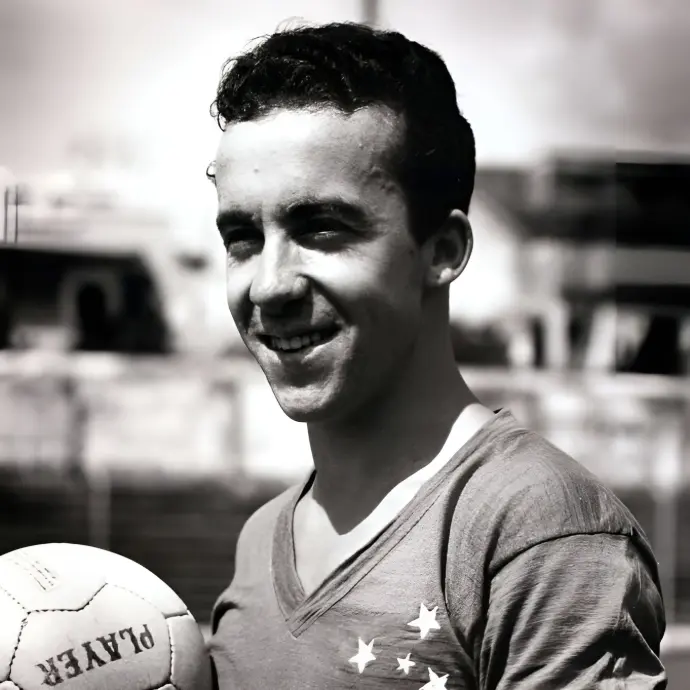
- Age : 20 years old
- Club : Cruzeiro
- Statistics : 58 games, 40 goals, / assists
- Trophies : Copa Rio Branco, Minas Gerais Championship
- Individual Awards : Minas Gerais Golden Shoe (20 goals)
In the calendar year 1967, Tostão solidified his reputation as one of the most intelligent and technically gifted forwards in world football. Playing for Cruzeiro, he was the creative and goal-scoring heartbeat of a team that had just stunned Pelé’s Santos in the 1966 Taça Brasil final and was now asserting itself as a new powerhouse in Brazilian football. Tostão’s ability to drop deep, link play, and finish with clinical precision made him a unique figure in the Brazilian game—a forward who thought like a playmaker and moved like a midfielder. That year, he continued to dazzle in the Campeonato Mineiro, where he was once again the league’s top scorer, and helped Cruzeiro maintain their dominance in Minas Gerais. His performances in the Taça Brasil and other national competitions kept him in the spotlight, as he combined flair with tactical intelligence in a way few others could. Internationally, Tostão became an increasingly central figure for the Brazilian national team, scoring regularly in friendlies and qualifiers as the Seleção began to rebuild after the disappointment of the 1966 World Cup. His vision, movement, and unselfish play made him a perfect fit for the evolving tactical ideas that would culminate in Brazil’s legendary 1970 side.
#9 Franz Beckenbauer
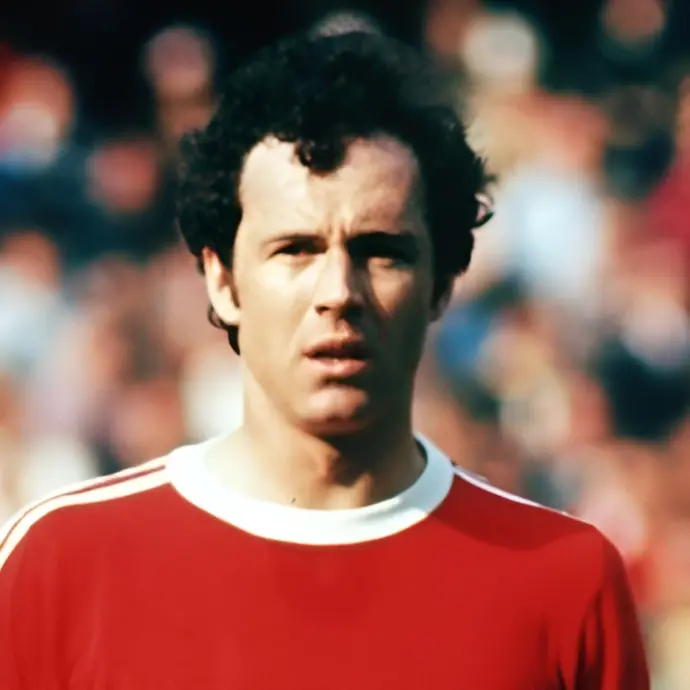
- Age : 22/23 years old
- Club : Bayern Munich
- Statistics : 45 games, 4 goals, 6 assists
- Trophies : Cup Winners Cup, German Cup
- Individual Awards : Bundesliga TOTY
In the calendar year 1967, Franz Beckenbauer continued his ascent as one of football’s most visionary and elegant figures. At just 21 years old, he was already the tactical nucleus of Bayern Munich, orchestrating play from deep with a blend of composure, intelligence, and technical mastery that was redefining the role of the defender. Nominally a sweeper, Beckenbauer played with the grace of a midfielder and the authority of a captain, even before officially wearing the armband. That year, he helped Bayern secure a third-place finish in the Bundesliga, while also playing a pivotal role in their DFB-Pokal triumph, the second of his career. But the crowning achievement came on the continental stage: Beckenbauer led Bayern to victory in the 1966–67 European Cup Winners’ Cup, the club’s first major European title. His performances throughout the campaign showcased his ability to dominate games against top international opposition, further cementing his reputation as a generational talent. Internationally, Beckenbauer remained a fixture in the West German national team, continuing to evolve into the leader who would eventually guide his country to global glory. His blend of tactical awareness, positional versatility, and calm under pressure made him indispensable in a team still regrouping after the heartbreak of the 1966 World Cup final.
#8 George Best
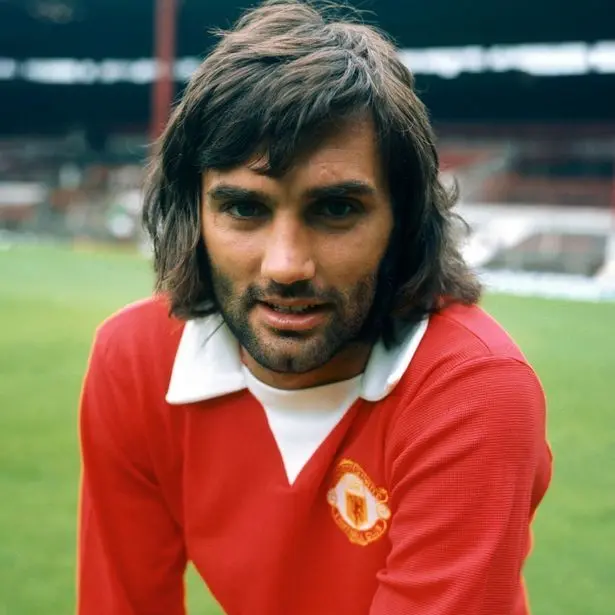
- Age : 20/21 years old
- Club : Manchester United
- Statistics : 49 games, 16 goals, / assists
- Trophies : Premier League, Community Shield
- Individual Awards : Premier League TOTY
In the calendar year 1967, George Best was not just a footballer—he was a phenomenon. At just 21 years old, the Northern Irish winger had already become the face of Manchester United and a symbol of the sport’s new era of glamour and flair. With his mesmerizing dribbling, blistering pace, and instinctive creativity, Best lit up the English First Division, helping United secure the league title and asserting himself as one of the most electrifying talents in the world. His performances were a blend of artistry and audacity, whether he was gliding past defenders or scoring from impossible angles. He was the kind of player who could change a match in a moment and captivate a crowd with a single touch. Off the pitch, Best’s charisma and style made him a cultural icon. Dubbed the “fifth Beatle” for his rockstar looks and lifestyle, he was as comfortable on the front pages as he was on the back. But behind the celebrity was a footballer of rare intelligence and instinct, whose understanding of space and timing made him a nightmare for defenders and a dream for fans.
#6 Gerd Müller
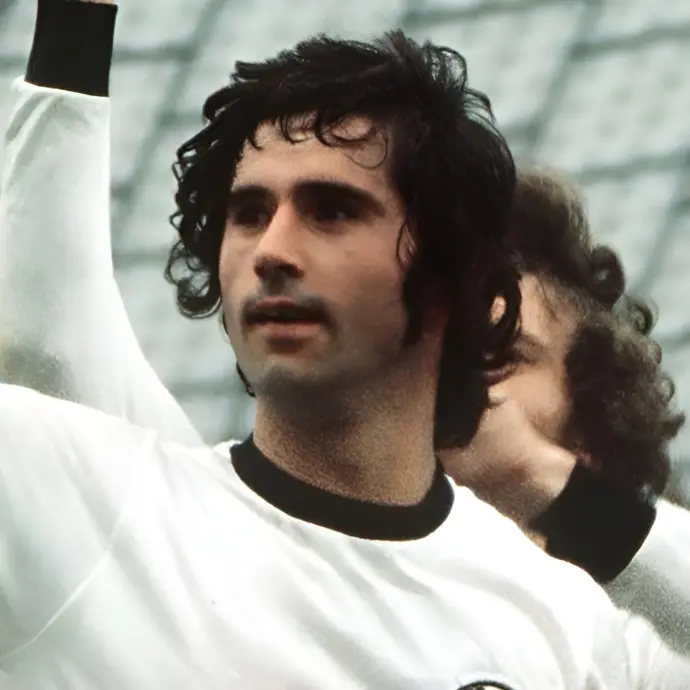
- Age : 21/22 years old
- Club : Bayern Munich
- Statistics : 47 games, 34 goals, 9 assists
- Trophies : Cup Winners Cup, German Cup
- Individual Awards : German POTY, Bundesliga TOTY, Bundesliga Golden Shoe (28 goals)
In the calendar year 1967, Gerd Müller emerged as the most lethal striker in European football, announcing himself as a force of nature in front of goal. At just 21 years old, the stocky Bavarian forward led Bayern Munich to a historic season, combining instinct, power, and uncanny positioning to redefine what it meant to be a center-forward. His low center of gravity and explosive acceleration over short distances made him nearly impossible to mark inside the box. That year, Müller scored an astonishing 36 goals in 41 matches across all competitions, earning him the Bundesliga top scorer title for the first time in his career3. His relentless finishing helped Bayern win the DFB-Pokal and, more significantly, their first major European trophy: the 1966–67 European Cup Winners’ Cup, where Müller played a pivotal role in their continental triumph. His performances earned him the German Footballer of the Year award in 1967—a recognition of his meteoric rise and growing influence. Internationally, Müller began to establish himself in the West German national team, scoring his first goals for the country and hinting at the dominance he would later bring to the world stage.
#5 Pedro Rocha
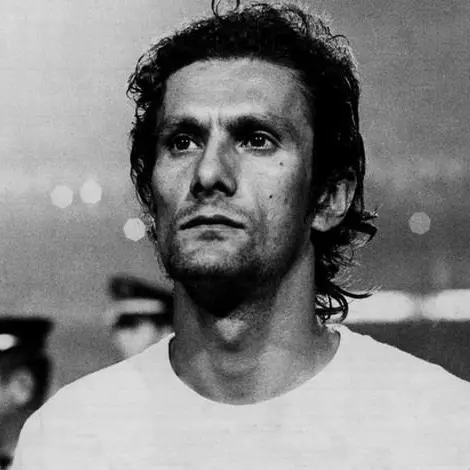
- Age : 24 years old
- Club : CA Peñarol
- Statistics : 40 games, 22 goals, / assists
- Trophies : Copa America, Uruguayan League
- Individual Awards : Copa America POTT, Copa America TOTT
In the calendar year 1967, Pedro Rocha stood at the peak of his powers, orchestrating play with elegance and authority for both Peñarol and the Uruguayan national team. A gifted attacking midfielder with a striker’s instinct, Rocha was the cerebral engine of a Peñarol side that dominated South American football and a national hero in Uruguay’s triumphant Copa América campaign. At club level, Rocha helped Peñarol reclaim the Uruguayan Primera División title, adding to the club’s golden era of domestic dominance. Though the team had already conquered the continent in previous years, Rocha’s influence remained undiminished—he was the creative heartbeat of a side that blended physicality with flair. But it was on the international stage that Rocha etched his name into Uruguayan folklore. During the 1967 Copa América, hosted on home soil, Rocha led Uruguay to glory with a series of commanding performances. He scored three crucial goals, including the decisive winner against Argentina in the final match at the Estadio Centenario, sealing Uruguay’s 11th South American title. His leadership, vision, and calm under pressure made him the tournament’s standout figure.
#5 Eusébio
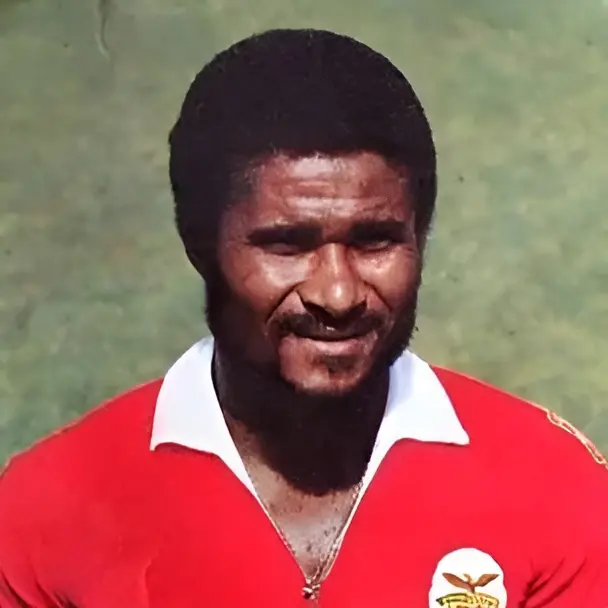
- Age : 24/25 years old
- Club : Benfica Lisbon
- Statistics : 40 games, 43 goals, / assists
- Trophies : Portuguese League
- Individual Awards : Portuguese League TOTY, Portuguese League Golden Shoe (31 goals)
In the calendar year 1967, Eusébio da Silva Ferreira was at the height of his powers, dazzling Europe with his explosive pace, thunderous right foot, and unrelenting hunger for goals. As the talisman of Benfica, he led the Lisbon giants through another dominant domestic campaign and continued to terrorize defenses across the continent. Already a Ballon d’Or winner and World Cup Golden Boot holder, Eusébio was now a fully realized force—equal parts artist and assassin. In the Portuguese league, he netted 31 goals, a staggering return that earned him yet another Bola de Prata as the league’s top scorer.
#4 Johan Cruyff
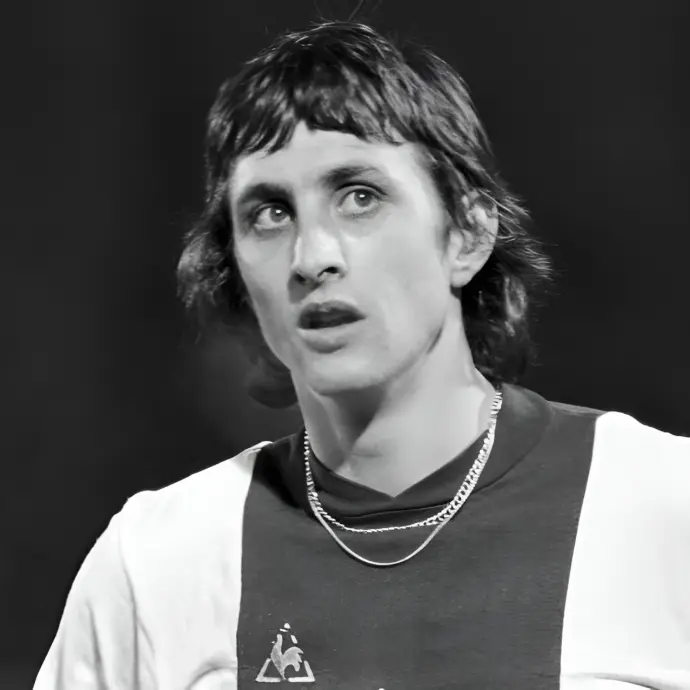
- Age : 19/20 years old
- Club : Ajax Amsterdam
- Statistics : 49 games, 38 goals, 25 assists
- Trophies : Eredivisie, Dutch Cup
- Individual Awards : Eredivisie TOTY, Eredivisie Golden Shoe (33 goals)
In the calendar year 1967, Johan Cruyff emerged not just as a prodigious talent, but as the philosophical heartbeat of a footballing revolution. At only 20 years old, the Dutch forward was already the undisputed star of Ajax, dazzling the Eredivisie with his vision, technique, and instinctive understanding of space. With his slender frame and effortless movement, Cruyff didn’t just play the game—he reimagined it. That year, he led Ajax to a Dutch league and cup double, scoring an astonishing 33 goals in the Eredivisie. His performances earned him the Dutch Footballer of the Year award for the first time, a recognition of his growing influence not only in the Netherlands but across Europe. Cruyff’s ability to drift between lines, dictate tempo, and create chaos in opposition defenses made him the prototype for the modern attacking midfielder. Under the guidance of Rinus Michels, Cruyff became the on-field embodiment of Total Football, a tactical philosophy that emphasized fluidity, intelligence, and positional interchange. Whether dropping deep to orchestrate play or bursting forward to finish with clinical precision, Cruyff was both conductor and soloist. Internationally, he continued to establish himself with the Dutch national team, having made his debut the previous year. Though the Netherlands had yet to qualify for a major tournament, Cruyff’s presence signaled a new era—one that would soon see them rise to global prominence.
#3 Bobby Charlton
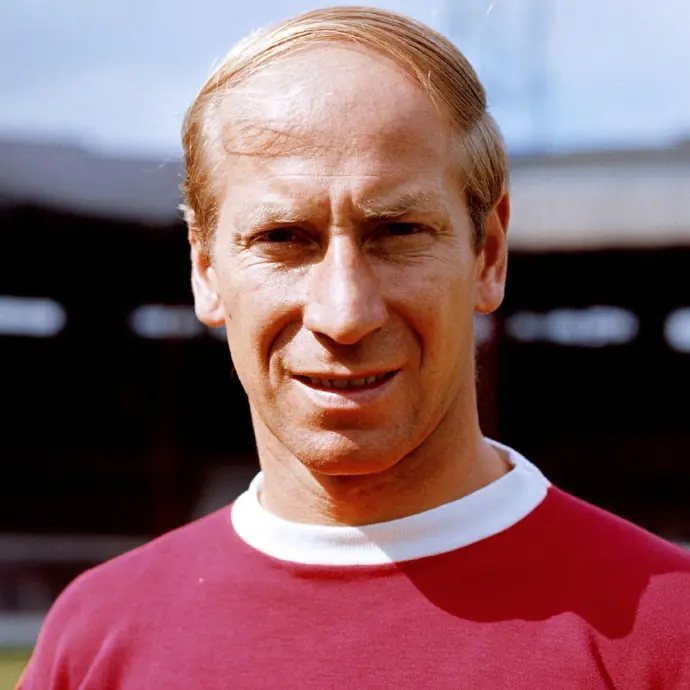
- Age : 29/30 years old
- Club : Manchester United
- Statistics : 53 games, 22 goals, / assists
- Trophies : Premier League, Community Shield
- Individual Awards : Premier League TOTY
In the calendar year 1967, Bobby Charlton stood as the embodiment of English footballing excellence—graceful, determined, and endlessly influential. Fresh off his Ballon d’Or win the previous year, Charlton continued to lead Manchester United with poise and purpose, anchoring a side that blended youthful flair with seasoned resilience. As the cerebral force in midfield, he dictated tempo, launched attacks, and scored with his trademark long-range precision. That year, Charlton helped United secure the 1966–67 First Division title, their second league championship in three seasons under Sir Matt Busby. He played 34 matches in the league, scoring 12 goals, and added further contributions in the FA Cup, European Cup, and Charity Shield, where he scored twice in a thrilling 3–3 draw against Tottenham. His total for the season reached 15 goals in 34 appearances, a testament to his enduring consistency and attacking instinct. Internationally, Charlton remained the cornerstone of England’s national team, continuing to build on the legacy of the 1966 World Cup triumph. He featured prominently in the British Home Championship and Euro 1968 qualifiers, scoring crucial goals and guiding the Three Lions with the same quiet authority that had made him a national hero.
#2 Flórián Albert
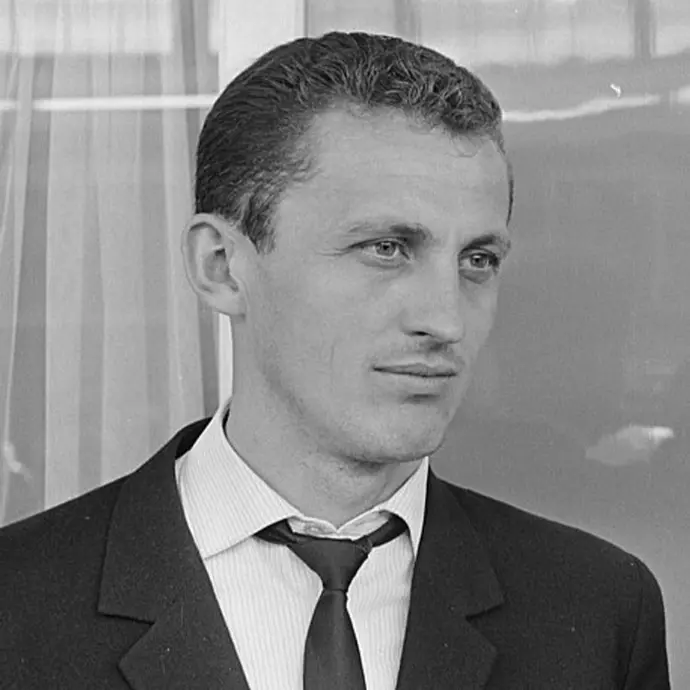
- Age : 25/26 years old
- Club : Ferencváros
- Statistics : 60 games, 13 goals, 26 assists
- Trophies : Hungarian League
- Individual Awards : Hungarian POTY, Hungarian League TOTY
In the calendar year 1967, Flórián Albert reached the zenith of his footballing artistry, dazzling Europe with a blend of grace, intelligence, and clinical precision that earned him the Ballon d’Or—the first and only Hungarian to receive the honor. Known as “The Emperor,” Albert was the crown jewel of Ferencváros, and his performances that year elevated him from national treasure to continental icon. Albert delivered his finest domestic season in 1967, scoring a remarkable 39 goals in 46 matches across all competitions. In the Hungarian Nemzeti Bajnokság, he was even more prolific, netting 28 goals in just 27 league games, guiding Ferencváros to the league title with an eight-point margin over rivals Újpest. Though he finished second in the scoring charts behind Antal Dunai, Albert’s influence on the pitch was unmatched—he was the conductor of every attack, the calm in every storm. His brilliance extended beyond Hungary’s borders. In the Inter-Cities Fairs Cup, Albert scored 8 goals in 6 matches, including decisive strikes against Olimpija Ljubljana, Örgryte IS, and Eintracht Frankfurt. Though Ferencváros fell short of the quarterfinals, Albert’s performances captivated audiences across Europe and solidified his status as one of the game’s most elegant forwards.
Winner : Jimmy Johnstone
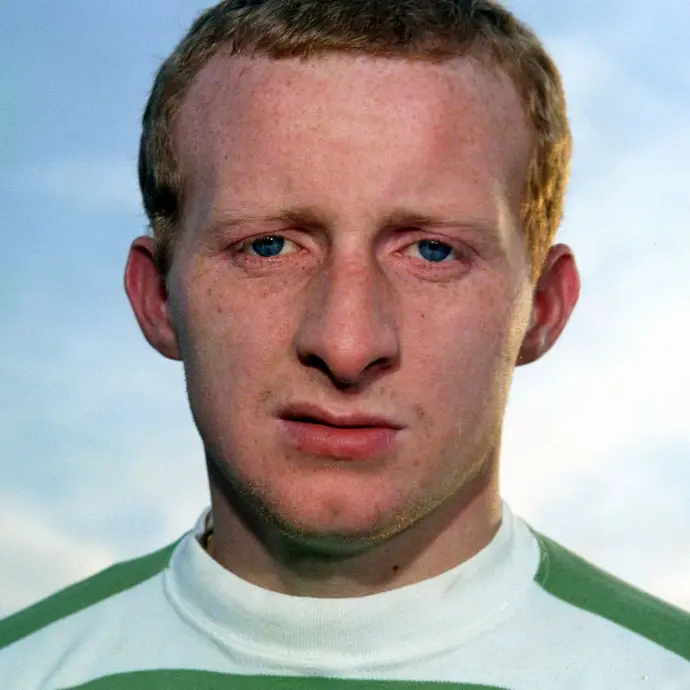
- Age : 22/23 years old
- Club : Celtic Glasgow
- Statistics : 52 games, 15 goals, / assists
- Trophies : British Home Championship, Champions League, Intercontinental Cup, Scottish League, Scottish Cup, Scottish League Cup
- Individual Awards : Champions League TOTY, Scottish League TOTY
In the calendar year 1967, Jimmy Johnstone—affectionately known as “Jinky”—was at the dazzling peak of his powers, mesmerizing defenders and enchanting fans with his hypnotic dribbling and fearless flair. As the mercurial right winger of Celtic, Johnstone played a starring role in what would become the most glorious chapter in the club’s history. That year, Johnstone helped lead Celtic to an unprecedented five-trophy haul, including the Scottish League, Scottish Cup, Scottish League Cup, Glasgow Cup, and most famously, the European Cup. On May 25, 1967, in Lisbon, Johnstone was instrumental in Celtic’s 2–1 victory over Inter Milan, making the Lisbon Lions the first British team to win Europe’s most coveted club trophy. His fearless runs and relentless energy stretched even the most disciplined Italian defense, earning him plaudits across the continent. Johnstone’s performances in Europe were so electrifying that he finished third in the 1967 Ballon d’Or voting, behind only Flórián Albert and Bobby Charlton. It was a rare honor for a Scottish player and a testament to his impact on the European stage. That same year, he also starred in a friendly against Real Madrid at the Santiago Bernabéu, where Celtic defeated the Spanish giants 1–0 in a match honoring Alfredo Di Stéfano. Johnstone stole the show, earning a standing ovation from the Madrid faithful. Though diminutive in stature, Johnstone was a giant in spirit. His low center of gravity, quick feet, and boundless creativity made him a nightmare for defenders and a joy for spectators. He was not just a winger—he was a whirlwind of imagination, a player who brought poetry to the pitch.